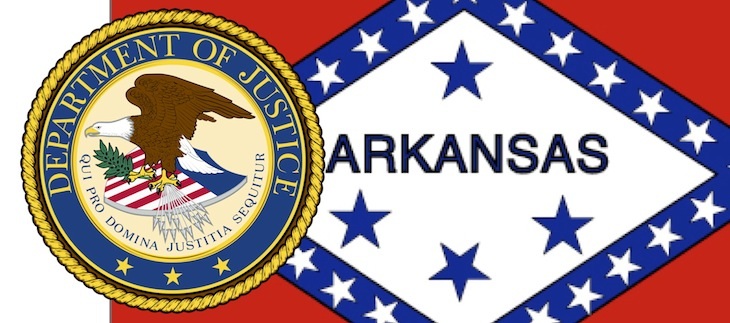Arkansas AG Griffin joins DOJ in lawsuit against Ticketmaster/Live Nation
by May 23, 2024 6:02 pm 457 views

Arkansas Attorney General Tim Griffin crossed political lines Thursday (May 23) to join the U.S. Department of Justice (DOJ) and 29 other states in filing an antitrust lawsuit against Ticketmaster and its parent company Live Nation Entertainment.
The lawsuit, much anticipated following months of complaints about high ticket prices to concerts and other events, was filed by the DOJ in the U.S. District Court for the Southern District of New York.
“We allege that Live Nation relies on unlawful, anticompetitive conduct to exercise its monopolistic control over the live events industry in the United States at the cost of fans, artists, smaller promoters, and venue operators,” U.S. Attorney General Merrick Garland said in a statement. “The result is that fans pay more in fees, artists have fewer opportunities to play concerts, smaller promoters get squeezed out, and venues have fewer real choices for ticketing services. It is time to break up Live Nation-Ticketmaster.”
Following are some of the allegations made by the DOJ in the complaint.
• Live Nation-Ticketmaster exploits its longtime relationship with Oak View Group, a potential competitor-turned-partner that has described itself as a “hammer” and “protect[or]” for Live Nation. In recent years, Oak View Group has avoided bidding against Live Nation for artist talent and influenced venues to sign exclusive agreements with Ticketmaster.
• Ticketmaster successfully threatened financial retaliation against a firm unless it stopped one of its subsidiaries from competing to gain a foothold in the U.S. concert promotions market.
• Live Nation-Ticketmaster locks concert venues into long-term exclusive contracts so that venues cannot consider or choose rival ticketers or switch to better or more cost-effective ticketing technology.
• Live Nation-Ticketmaster’s conduct and exclusive contracts prevent new and different promotions and ticketing competitors and business models from emerging.
• Live Nation-Ticketmaster has gained control of key venues, including amphitheaters, through acquisitions, partnerships, and agreements. Live Nation-Ticketmaster restricts artists’ use of those venues unless those artists also agree to use their promotion services.
“Arkansans – whether they are concert goers, artists, or venue operators – are at the mercy of Live Nation and Ticketmaster when it comes to live entertainment, Griffin noted in his statement. “Live Nation’s monopoly dictates which artists play where, prevents venues from using other ticketing companies at the risk of losing access to artists, and milks fans with large service fees in a so-called marketplace where there is a paucity of choice. Live Nation is also in violation of Arkansas’s prohibition on monopolies and our state’s Unfair Practices Act.”
Joining Griffin in the suit are the attorneys general from: Arizona, California, Colorado, Connecticut, the District of Columbia, Florida, Illinois, Maryland, Massachusetts, Michigan, Minnesota, Nevada, New Hampshire, New Jersey, New York, North Carolina, Ohio, Oklahoma, Oregon, Pennsylvania, Rhode Island, South Carolina, Tennessee, Texas, Virginia, Washington, West Virginia, Wisconsin, and Wyoming.
Officials with Live Nation issued a lengthy statement refuting the DOL allegations, noting that it is not a monopoly and that breaking up Live Nation will not result in lower ticket prices.
“At bottom, we are another casualty of this Administration’s decision to turn over antitrust enforcement to a populist urge that simply rejects how antitrust law works. Some call this ‘Anti-Monopoly,’ but in reality it is just anti-business,” noted part of the company’s statement. “A central tenet of this worldview is that antitrust should target companies that have grown large enough that in some nebulous way they ‘dominate’ markets – even if they attained their size through success in the marketplace, not practices that harm consumers, which is the actual focus of antitrust laws. One of the most jaw-dropping parts of today’s complaint is the assertion that there are ‘barriers to entry’ because ‘artists naturally prefer to work with a promoter who is successful in promoting many high-demand shows at popular venues’ — namely, Live Nation. That is a supreme expression of competition on the merits, winning by being better. But to this group it’s anticompetitive.”
